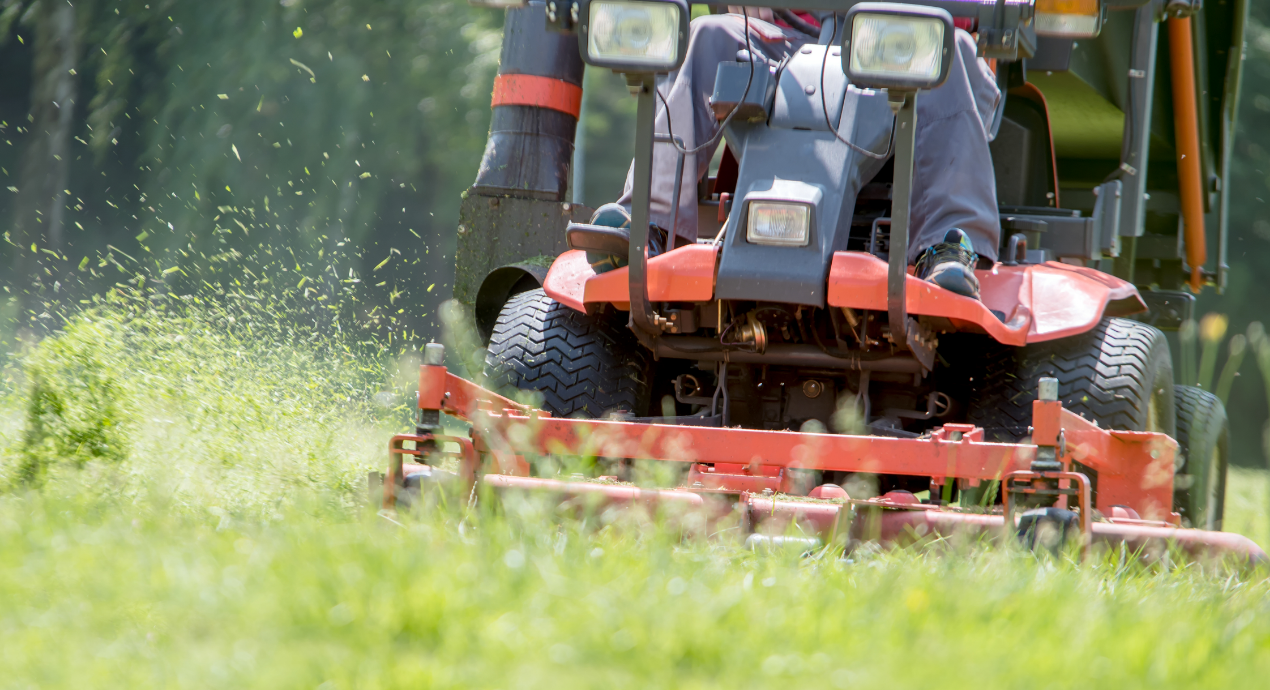
Contemplating coverage?
Subscribe to receive our emails & get
$200 off!
Have questions?
Call us: (833) 544-8273


Written By Clint Bird
We understand the frustration of having your trusty mower refuse to start, and we’re here to provide you with expert insights to help you get back to mowing your lawn effortlessly. Our team of experienced professionals has compiled this troubleshooting guide to assist you in diagnosing and resolving the starting problems of your riding mower. Welcome to our comprehensive guide on troubleshooting common issues that may prevent your riding mower from starting.
Before we delve into the troubleshooting process, it’s essential to have a basic understanding of the starting system of your riding mower. The starting system consists of several components working harmoniously to initiate the engine’s operation. These components include the battery, ignition switch, starter solenoid, starter motor, fuel system, and engine.
There’s a reason Liberty Home Guard was rated the #1 Home Warranty
Service by U.S. News and World Report for 2021, 2022, 2023, and 2024. Check out our services.
A weak or dead battery is often a prime suspect when your riding mower fails to start. Begin by ensuring that the battery terminals are clean and securely connected. Use a multimeter to measure the battery voltage. If the voltage exceeds the manufacturer’s recommendation, consider recharging or replacing the battery.
An inadequate fuel supply can prevent your mower from starting. Check if there’s enough fuel in the tank. Additionally, ensure that the fuel filter and fuel lines are not clogged. If your mower has been sitting for a while, stale fuel could also be the culprit. Drain the old fuel and replace it with fresh gasoline.
The ignition system plays a crucial role in starting your riding mower. Inspect the spark plug for signs of wear or fouling. A worn-out spark plug can hinder ignition. Consider replacing the spark plug if necessary. Additionally, check the ignition switch and ensure it’s functioning correctly.
The starter system includes the starter solenoid and the starter motor. Listen for a clicking sound when you turn the key. If you hear a click but the engine doesn’t crank, it could indicate a faulty solenoid. A lack of any noise might point to a faulty starter motor. Replacement of these components may be necessary.
Many riding mowers are equipped with safety features that prevent the engine from starting under certain conditions. Check the seat switch, blade engagement switch, and other safety interlocks. Make sure they’re properly engaged and not obstructed.
Faulty wiring or corroded connections can disrupt the starting process. Thoroughly inspect the wiring harness for any damage or wear. Clean and tighten all connections to ensure proper electrical flow.
Low engine compression can make starting difficult. If you’ve ruled out other causes and your mower’s engine still won’t start, it might be time to check its overall health. Consult the manufacturer’s guidelines for conducting a compression test.
Ensuring your riding mower’s consistent starting and optimal performance requires regular maintenance. Here are some essential tips to keep your mower running smoothly:
Always use high-quality, fresh gasoline for your riding mower. Stale or contaminated fuel can lead to starting problems and engine issues. Consider using fuel stabilizers if your mower will be sitting idle for an extended period.
A clogged air filter can restrict airflow to the engine, affecting combustion and starting. Regularly inspect the air filter and clean or replace it as needed. A clean air filter promotes efficient engine performance.
Maintaining the right oil level and using the correct oil type is crucial for the engine’s health. Check the oil level regularly and change the oil according to the manufacturer’s recommendations. Clean oil helps in smoother starts and overall performance.
Monitor the condition of the spark plug and replace it as necessary. A worn-out spark plug can lead to misfiring and starting issues. Consult your mower’s manual for the recommended spark plug type and replacement interval.
If your mower uses a battery, ensure it’s properly charged during the off-season. Regularly clean the battery terminals to prevent corrosion. Consider using a battery tender to maintain optimal battery health.
Inspect the drive belts and pulleys for wear and proper tension. Worn-out belts can affect the mower’s performance and starting capabilities. Replace any damaged belts or pulleys promptly.
Overheating can lead to starting difficulties. Check the cooling system components, including the radiator and cooling fins, for dirt and debris buildup. Keeping the cooling system clean ensures efficient engine operation.
Frequent use of your riding mower can prevent fuel from becoming stale and keep various components in good working condition. Regular use also prevents the engine from sitting idle for extended periods, which can lead to starting issues.
While this guide covers a range of troubleshooting steps, there may be instances where the issue is more complex and requires the expertise of a professional technician. If you’ve exhausted the DIY troubleshooting methods and your riding mower still won’t start, it’s advisable to consult a reputable mower repair service. They have the knowledge and tools to diagnose and resolve intricate issues effectively. Liberty Home Guard provides home warranty plans to ensure that these systems continue functioning properly at minimal cost to you. Call us at (833)-544-8273 to learn more.
There’s a reason Liberty Home Guard was rated the #1 Home Warranty
Service by U.S. News and World Report for 2021, 2022, 2023, and 2024. Check out our services.
Riding mowers are valuable tools for maintaining your lawn, and encountering starting issues can be frustrating. Following the steps outlined in this guide and prioritizing regular maintenance can significantly reduce the chances of facing starting problems. Remember that a well-maintained riding mower starts reliably and delivers consistent and efficient performance throughout the mowing season. Happy mowing, and may your lawn always be lush and well-kept!
Stay Ahead of Potential
Home Mishaps!
Subscribe to our Liberty Home Guard Newsletter and gain access to exclusive content that ensures your peace of mind.